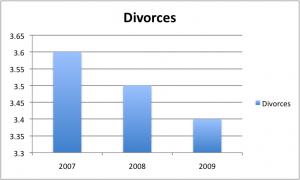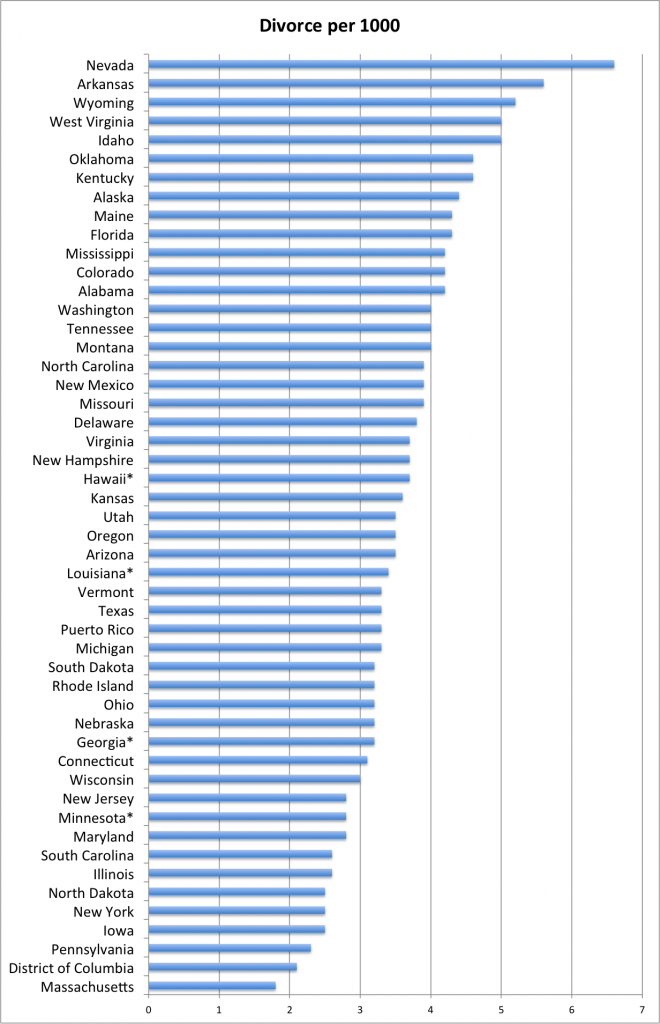Below is a guest post by Laurie Israel on the McCourt postnuptial agreement. A shorter version of this article was published on HuffingtonPost.
Last weekend, I waded through the 100-page California Los Angeles Superior Court opinion on the Frank and Jamie McCourt case, McCourt v. McCourt, Los Angeles County Superior Court # BD514309 (12/7/10). This is the case where Frank McCourt asserted that he owns the Los Angeles Dodgers (now reportedly worth over $800 million) and his wife, Jamie, does not. The parties had signed a postnuptial agreement in 2004, and separated after 30 years of marriage in 2009. It is one of the most expensive divorce trials in California history with estimated legal costs at $20 million. The McCourts’ assets are reported to be over $1 billion. The Court found the prenup to be invalid. Appeals are expected.
The parties entered into the postnup at the time of Frank’s purchase of the Dodgers in early 2004. After the purchase, the couple planned a move to California from Massachusetts with their four grown sons. They planned to operate the Dodgers together with Jamie as the CEO.
In Massachusetts, the McCourts had kept their property separately titled as an asset protection strategy. As an “equitable distribution” jurisdiction, the titling of the property is irrelevant to marital rights, which are presumed to be joint in all property. California is a “community property” state where separate titling has legal ramifications in divorce.
In signing the disputed postnup Jamie’s attorney maintained that she was looking for asset protection and not to change her equal rights to the Dodgers or any of the other property titled in Frank’s separate name upon divorce. Frank asserted that Jamie was risk-adverse and had traded security in the couple’s residential properties for rights in all the business properties. Big stakes were involved. The marital estate is worth over $1 billion dollars. If the postnup had been held valid, Jamie’s share of the assets accumulated during the 30-year marriage would have been 15% and Frank’s 85%. Apparently both Jamie and Frank were actively involved in the business interests, including the Dodgers.
The McCourt case involved many legal issues in addressing whether the agreement the McCourt signed was a valid, enforceable postnup. There were detailed discussions and arguments about California community property law and whether the postnup was valid under it. There are also questions about basic contract law issues. Was there a meeting of the minds between Jamie and Frank? Did Frank satisfy his fiduciary duty to Jamie, or did he take unfair advantage of her? Did Jamie receive fair consideration in the bargain they made? Was the discrepancy in the language between the two versions (one granting him the Dodgers as his separate property, and one stating that it wasn’t) a “scriveners error” that could be corrected in Frank’s favor?
Some of the case facts as reported in the Court decision read like a comedy of errors, except it is so sad. The couple worked with their lawyer on the agreement starting in early 2004. During a very short period of time, they received many drafts and apparently barely looked at them, relying mainly on what the lawyer told them the postnup contained. The lawyer never asked the McCourts whether they had wished to alter their rights of equitable distribution under Massachusetts law in signing the prenup.
The number of drafts provided in a short period of time was mind-numbing. When the McCourts finally signed it, they signed two conflicting versions. Neither of them seemed to understand what the postnup said. For a while they forgot about it, moved to California, and worked on running the Los Angeles Dodgers franchise.
In 2007, Jamie and Frank jointly consulted with a California estate-planning lawyer to discuss putting their property into a living trust to avoid probate. The attorney reviewed the postnup for compliance with California law. This is when Jamie understood that the agreement went way beyond her goal of asset protection, and that Frank might have sole rights to the Dodgers.
Jamie instructed the estate planning attorney to “fix it”, and the California attorney prepared a draft of a corrective living trust agreement in 2008. Frank reviewed this agreement, made comments on it, and, according to the Court’s findings, requested that all of both of the parties’ separate property be changed to community property.
After the changes requested by Frank were put into the agreement in 2009, Frank still refused to sign the corrective agreement. The estate-planning attorney told Jamie she had two choices to get the matter moving: “[a] civil conversation with Frank or a nuclear bomb.” As the attorney later stated, she meant that if the McCourts didn’t start talking with each other, their marriage would explode. And that is what happened.
Frank, asserting that that Jamie’s presence as an executive at the Dodgers was disruptive, fired her as the Dodgers’ CEO. Five days later, Jamie filed for divorce and the nuclear option – divorce litigation – followed.
The contention caused by the postnup once it became a known problem may have been a contributing factor to the McCourt’s marital breakdown. In fact, the faulty prenup could have been the major cause of the breakdown. A good postnup is supposed to help a marriage. This one did not.
Here are some lessons for a successful postnuptial agreement gained from the McCourt case:
Have a family lawyer draft it. Divorce lawyers are intimately familiar with family disputes and marital dynamics. We know how important financial equity is to marriages whether they are ongoing, or whether they’re breaking down. We tend to look at postnups and prenups differently than business lawyers and estate-planning lawyers. For us, it’s not about “limiting the downside of our client in a divorce” but it’s about supporting and sustaining the marriage. Family lawyers tend not to view a postnup as simply “a business deal”, to be negotiated harshly. Estate-planning lawyers do not generally know enough about divorce law to adequately and sensitively draft a postnup.
Make sure you and your lawyer communicate with each other. The McCourts’ attorney never expressly asked the parties if they had intended their marital rights to all property (presumably equal in Massachusetts) to change when they signed the postnup. This was a crucial question and a crucial issue. Take the time to discuss all your concerns and aims with your attorney and get answers that are direct, on point, and thoughtful. Miscommunications and misunderstandings between attorneys and clients lead to bad results.
Make sure you read it carefully. There were multiple drafts provided to the McCourts in a relatively short period of time. This is enough to numb the mind of any client, as well as the lawyer. Mistakes get made. Don’t enter into a postnuptial agreement (or any agreement) in a rush. These agreements contain important terms that affect your future. Take your time. Understand it. Do not sign under duress. Don’t depend on a verbal description of what the agreement says. Read it yourself.
Make sure you know what you would get if you didn’t sign it. This is called a knowing and meaningful waiver of rights. It is discussed, as well as other factors for a valid postnup, in the recent Massachusetts postnup case, Ansin v. Craven-Ansin, 457 Mass. 283 (2010). You need to have time to review the agreement and advice as to what the agreement means. Even if you are a lawyer (as is Jamie McCourt), sometimes legal issues are so complex that an expert is needed to explain it to you. It helps to have independent counsel just looking out for your rights.
Act as a fiduciary with respect to your spouse. If you are signing a postnup (and not a divorce agreement), you are still married, and are trying to stay married. You owe your spouse the highest duty of fidelity and truthfulness as you enter into an agreement with your spouse. This means that you should be protecting your spouse’s interests as well as yours. Otherwise, you might as well just get a divorce.
Evaluate your aims and make sure the agreement is narrowly drafted to meet them. Often legal agreements have extra terms that do not closely connect to the matter at hand, but are just passed down from contract to contract. I’ve seen many of these, and other extraneous terms thrown into these agreements. They are slavishly and thoughtlessly copied from one on-the-shelf document to another by attorneys. If Jamie’s interest was asset protection, and not to change the terms of a possible divorce, it is possible that these needs might have been met in a carefully and narrowly drafted agreement and with other estate planning strategies. Especially in the context of prenuptial agreements and postnuptial agreements (when you’re presumably dealing with viable marriages), unnecessary provisions can cause great harm, which can hurt an ongoing marriage.
If you can’t resolve it, maybe it’s time to get a divorce without muddying the waters. If the McCourts had found in 2004 that they had conflicting aims during the negotiation, they either could have resolved them with or without the postnup (or by other, estate planning strategies). If not resolvable, they could have begun the divorce process without the ambiguous agreement. If that had happened in Massachusetts, all property, no matter in whose name it was titled, would have been deemed “marital” and subject to equitable distribution. That means, the judge could have made a clear-headed decision about who gets what. The parties knowing what the rules of equitable distribution are would likely have settled for a reasonable and equitable property split.
Make sure the postnup is fair. Did you ever hear the expression, “Pigs get fed, hogs get slaughtered”? We lawyers love to point this out to our clients. Often by wanting too much, they risk getting too little.
In the postnup context, it means that if your postnup is unfair to your spouse either when executed or at the time it comes into play, it is likely to be challenged in court. At the least, it will create bad blood between you and your spouse, which will spill over and affect to the children of the marriage. It will eat up your family.
A good guideline on fairness is to see if you’d be satisfied with what your spouse is receiving in the divorce. If you are, and you’re also satisfied with what you get under the agreement, the postnup is probably fair. When it’s not fair, or if it becomes inequitable over time, then it is corrosive to the marriage and leads to a nasty divorce.
I keep thinking that this is what happened to the McCourts. Instead of providing mutual financial protection, clarity, and fairness for each other, the McCourts’ postnup might have been the virus that destroyed their marriage.
Read more information about postnuptial agreements.



 What is marital mediation and what brings someone into the field? Laurie Israel was a divorce attorney who changed her focus in mid-career to saving marriages.
What is marital mediation and what brings someone into the field? Laurie Israel was a divorce attorney who changed her focus in mid-career to saving marriages. Based on her personal experience with divorce and insights gathered from leading divorce gurus, Deborah has become a leading divorce and relationship expert who helps people manage the divorce process and move on to a better life.
Based on her personal experience with divorce and insights gathered from leading divorce gurus, Deborah has become a leading divorce and relationship expert who helps people manage the divorce process and move on to a better life. Breaking the bonds of financial trust can be equally damaging to a relationship. If couples want to stay married and value that relationship, they will do all they can to be transparent, forthcoming, and create a mutually supportive approach to money. Otherwise they risk losing the love, respect, and trust that holds their relationship together.
Breaking the bonds of financial trust can be equally damaging to a relationship. If couples want to stay married and value that relationship, they will do all they can to be transparent, forthcoming, and create a mutually supportive approach to money. Otherwise they risk losing the love, respect, and trust that holds their relationship together. University of Michigan professor Kira S. Birditt led the study of 373 couples. The study found that 46% had divorced by the final year of the study in 2002.
University of Michigan professor Kira S. Birditt led the study of 373 couples. The study found that 46% had divorced by the final year of the study in 2002.


